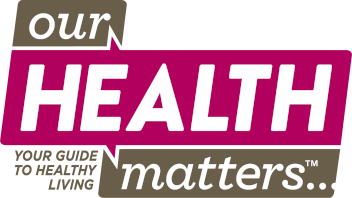Reduce the negative impact of stress and put your personal well-being and health first.
Lori Boyajian-O’Neill, D.O., Overland Park Regional Medical Center and Centerpoint Medical Center
S tress is a normal part of life no matter your age—and, in fact, a limited amount of stress can actually be good for you. The human body is engineered to experience stress and react to a normal amount of stress. But it’s when we remain in a state of heightened arousal that our physical and mental state can get out of whack. Being “stressed out” as you prepare for a presentation or race to meet a deadline is okay, as long as your body’s reactions quickly ratchet down—both physically and emotionally following the taxing situation.
Unchecked stress can affect health if you’re facing a constant barrage of challenges with no relief. That’s when negative stress-related tension and an increased flow of stress hormones, like *cortisol, build to the point where you’re more in danger of worsening or developing conditions like high blood pressure and sugar levels, heart disease, obesity, asthma, diabetes, gastrointestinal problems, depression, and anxiety, accelerated aging and even premature death.
As a sports medicine physician, I help athletes of all ages focus on self-care, both on and off the field to improve performance and maintain health. Often that includes elements of incorporating meditation, exercise, plenty of rest and a healthy diet into a daily routine. My passion is to ensure people develop a lifestyle that promotes health and happiness. An important component of any healthy physical foundation is to know not only how to manage stress, but to reduce it so it doesn’t adversely impact health.
A significant part of coping with stress, whether it’s personal, like job or family issues, or broader, such as worrying about the world at large, is to balance your life. The big challenge here, of course, is to keep life in balance, just like your car. That includes listening to your body and taking responsibility for how you react to and deal with stress on all levels.
De-stressing is up to you. The good news is that once you recognize your triggers, you can get a better grasp on managing, balancing and maintaining for a happier, healthier you. •
Dr. Lori Boyajian-O’Neill, D.O., is a board-certified Sports Medicine Physician at Overland Park Regional Medical Center and Centerpoint Medical Center, part of HCA Midwest Health, Kansas City’s leading healthcare provider. For more information, visit http://hcamidwest.com.





